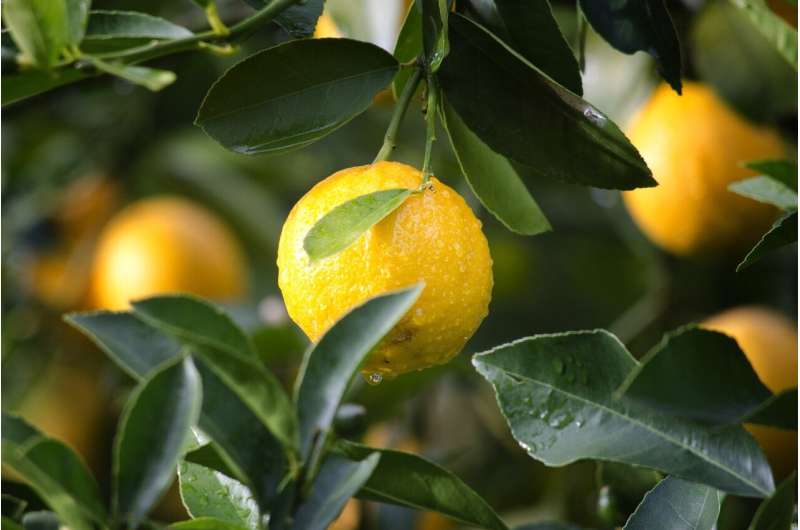Study points to potential treatment for citrus disease

Brazil is the world leader in sweet orange production, but citrus cultivation in the region faces constant threats concerning the availability of water and the outbreak of diseases. New research published in the Journal of Applied Microbiology indicates that a fatty acid called hexanoic acid may help protect against one such problem: citrus canker, a bacterial infection that causes brownish eruptive lesions on the leaves, stems, and fruit of citrus trees.
Hexanoic acid might be a suitable substitute for chemicals used to protect citrus from bacterial infections. Investigators examined several mechanisms that might explain how hexanoic acid exerts its effects.
"The world population needs food, and agriculture based on chemical protection has guaranteed food in unimaginable amounts. More recently, people want safer food," said senior author Henrique Ferreira, DPhil, of the Sao Paulo State University, in Brazil. "Therefore, we are working hard to deliver safer alternatives to protect plants and minimize the impacts of old-school chemical defenses."
More information: M.N. Caccalano et al. Hexanoic acid: a new potential substitute for copper-based agrochemicals against citrus canker Journal of Applied Microbiology DOI: 10.1111/jam.15125
Provided by Wiley




















